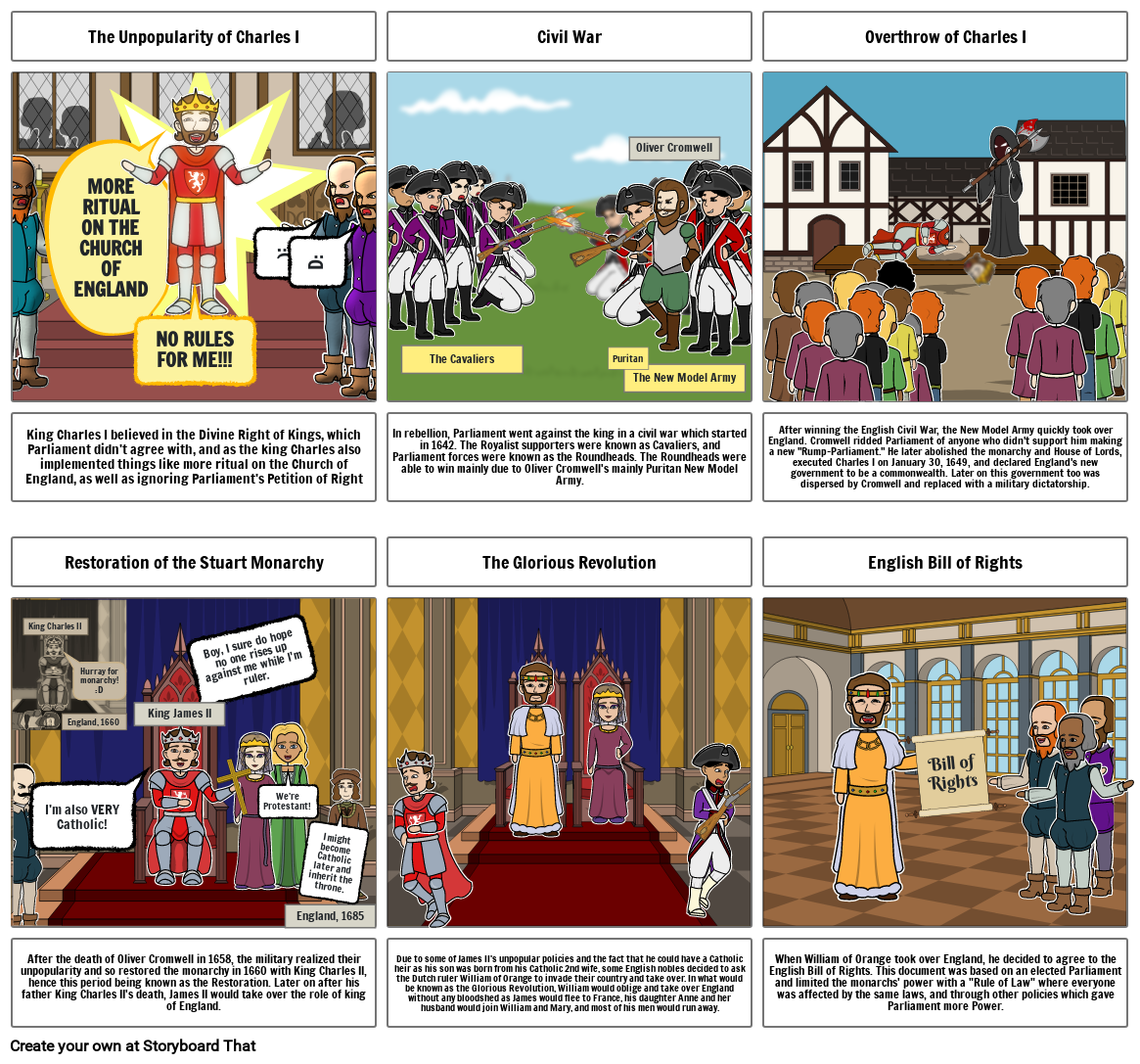The English Civil War

Storyboard Text
- The Unpopularity of Charles I
- King Charles II
- England, 1660
- Hurray for monarchy!:D
- MORE RITUAL ON THE CHURCH OF ENGLAND
- D:
- :(
- Civil War
- Oliver Cromwell
- Overthrow of Charles I
- King Charles I believed in the Divine Right of Kings, which Parliament didn't agree with, and as the king Charles also implemented things like more ritual on the Church of England, as well as ignoring Parliament's Petition of Right
- Restoration of the Stuart Monarchy
- NO RULES FOR ME!!!
- Boy, I sure do hope no one rises up against me while I'm ruler.
- In rebellion, Parliament went against the king in a civil war which started in 1642. The Royalist supporters were known as Cavaliers, and Parliament forces were known as the Roundheads. The Roundheads were able to win mainly due to Oliver Cromwell's mainly Puritan New Model Army.
- The Glorious Revolution
- The Cavaliers
- Puritan
- The New Model Army
- After winning the English Civil War, the New Model Army quickly took over England. Cromwell ridded Parliament of anyone who didn't support him making a new Rump-Parliament. He later abolished the monarchy and House of Lords, executed Charles I on January 30, 1649, and declared England's new government to be a commonwealth. Later on this government too was dispersed by Cromwell and replaced with a military dictatorship.
- English Bill of Rights
- After the death of Oliver Cromwell in 1658, the military realized their unpopularity and so restored the monarchy in 1660 with King Charles II, hence this period being known as the Restoration. Later on after his father King Charles II's death, James II would take over the role of king of England.
- I'm also VERY Catholic!
- King James II
- We're Protestant!
- England, 1685
- I might become Catholic later and inherit the throne.
- Due to some of James II's unpopular policies and the fact that he could have a Catholic heir as his son was born from his Catholic 2nd wife, some English nobles decided to ask the Dutch ruler William of Orange to invade their country and take over. In what would be known as the Glorious Revolution, William would oblige and take over England without any bloodshed as James would flee to France, his daughter Anne and her husband would join William and Mary, and most of his men would run away.
- When William of Orange took over England, he decided to agree to the English Bill of Rights. This document was based on an elected Parliament and limited the monarchs' power with a Rule of Law where everyone was affected by the same laws, and through other policies which gave Parliament more Power.
- Bill of Rights
Over 30 Million Storyboards Created
No Downloads, No Credit Card, and No Login Needed to Try!
